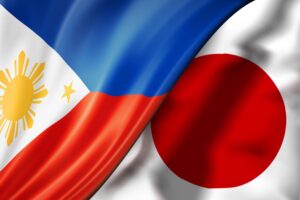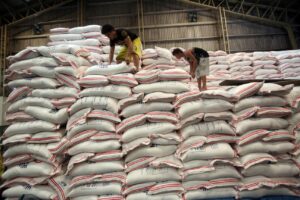
The Philippines and Japan are optimistic about expanding two-way trade and addressing trade barriers, including concerns over tariffs on Philippine bananas, officials said in Tokyo on Monday.
Boosting Trade and Investment
Japan has shown interest in Philippine products such as barako coffee, known locally as the “phantom coffee” for its rare supply, and aims to increase investments in sectors such as infrastructure, agriculture, geo-mapping, and manufacturing.
“We’re very optimistic about the relationship between our two countries. It is a very promising relationship,” an official from Japan’s Ministry of Economic, Trade, and Industry (METI) said.
Japan has been expanding its investments in the Philippines, focusing on food, agribusiness, retail, and services. Filipino demand for Japanese goods and services, driven by a strong affinity for Japanese culture, continues to fuel growth.
Banana Trade Challenges
The Philippines has proposed a review of the Japan-Philippines Economic Partnership Agreement (JPEPA) to regain its share in Japan’s banana market. Once the dominant supplier, the Philippines’ share of Japan’s banana imports dropped from 90% in 2012 to 75% in 2024 due to pest issues and Japan’s strict quality standards.
Japan plans to enforce zero tariffs on bananas from other exporting countries, such as Vietnam, by 2028. Philippine officials are lobbying for the same preferential treatment, given that many Filipino agricultural families depend on banana exports.
“We’ve sent a strong letter to the Ministry of Foreign Affairs urging the resumption of discussions,” said Dita Angara-Mathay, the Philippine Embassy’s Commercial Counsellor in Tokyo.
However, Japan prefers to address the matter through the Regional Comprehensive Economic Partnership (RCEP), a 15-country trade bloc, while the Philippines seeks a bilateral solution to ensure tailored concessions.
Infrastructure and Technology Investments
Japan’s investments in the Philippines extend beyond trade. Through Official Development Assistance (ODA) worth billions of dollars, Japan has supported projects in governance, disaster risk reduction, energy, healthcare, and infrastructure development.
One area of particular interest is geo-mapping technology, given Japan’s expertise in identifying fault lines, which could be crucial for an earthquake-prone country like the Philippines.
CREATE MORE Act and Trade Liberalization
Japan’s business community has welcomed the Philippines’ passage of the CREATE MORE Act, which aims to improve tax incentives, streamline policies, and make the country more investment-friendly.
“We are happy the law was approved. Effective implementation of this and efforts to improve infrastructure and address taxation issues will make the Philippines an even more attractive destination for Japanese investors,” a METI official noted.
Trade and Investment at a Glance
- Japan is the largest investor in the Philippine Economic Zone Authority (PEZA), contributing 28% of total investments, amounting to ₱798 billion ($16.3 billion) in 2024.
- These investments have generated 342,845 direct jobs across nearly 900 PEZA-registered enterprises.
The growing partnership between Japan and the Philippines, strengthened by shared security and economic goals, signals brighter prospects for both countries as they navigate trade challenges and expand collaborations.





















Comments are closed for this article!